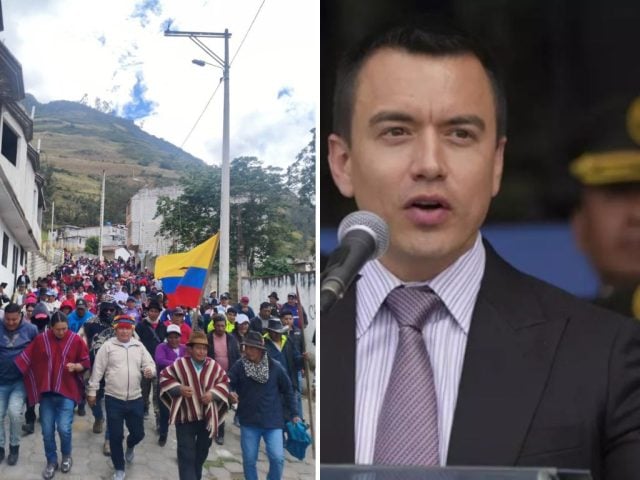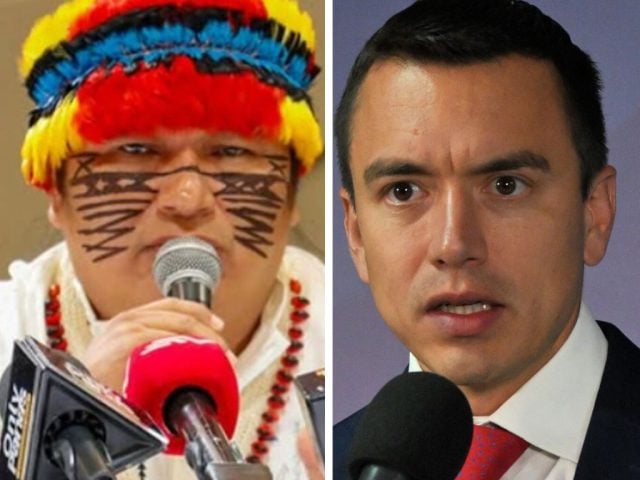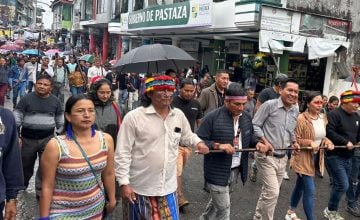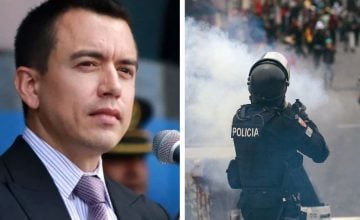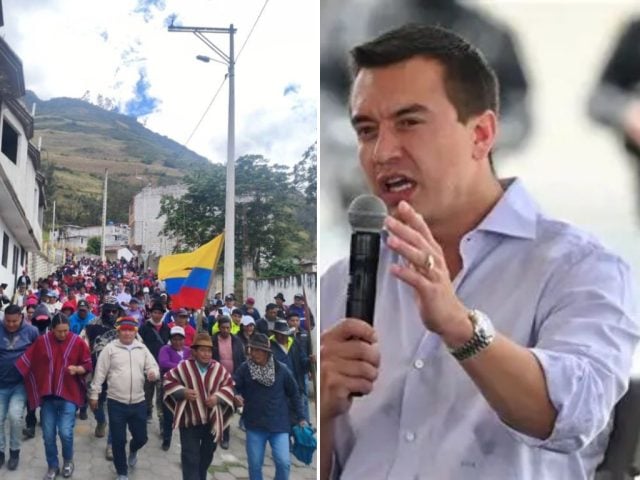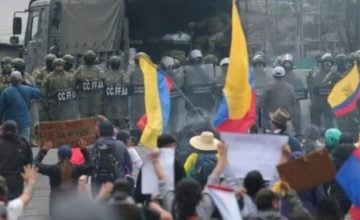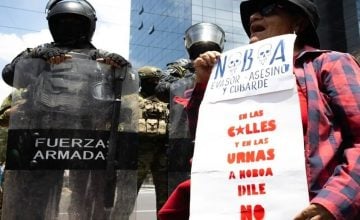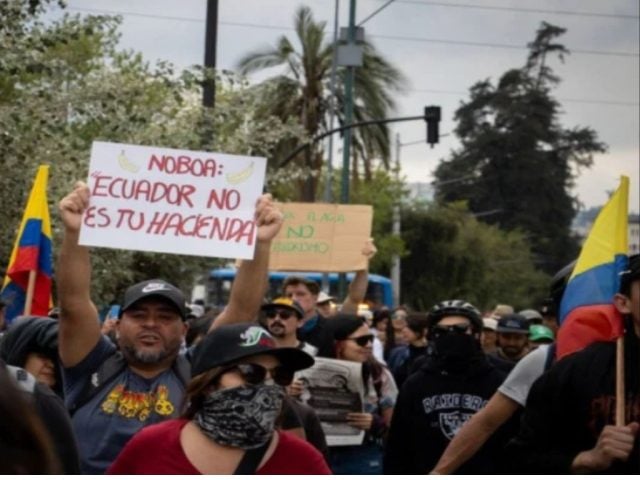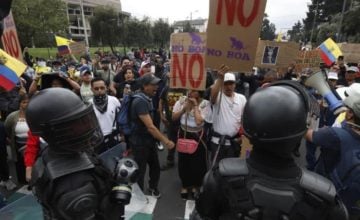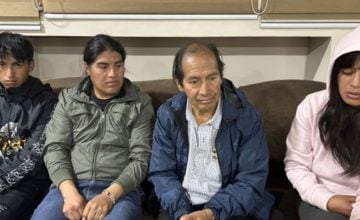The Confederation of Indigenous Nationalities of Ecuador (CONAIE) accused Daniel Noboa of answering popular demands with repression and of deepening a “war policy” after the president declared a state of emergency in 10 provinces amid a nationwide strike now in its second week over the elimination of the diesel subsidy.
Through Executive Decree No. 174, Noboa’s government imposed the measure in the provinces of Pichincha, Cotopaxi, Tungurahua, Chimborazo, Bolívar, Cañar, Azuay, Orellana, Sucumbíos and Pastaza, saying it would “safeguard public order, internal security, and citizen well-being.”
The measure restricts freedom of assembly 24 hours a day and authorizes the Armed Forces and the National Police to intervene in the cities and territories where national strike protests are taking place.
At an expanded council held in Quito on October 2, CONAIE and its regional branches said they “resolved to maintain resistance in the ‘2025 National Strike’ against the authoritarian government of Daniel Noboa, subordinate to the International Monetary Fund (IMF).”
The organization stated that the national mobilization began on September 22 and will continue until Executive Decree 126 — the measure by which Noboa eliminated the subsidy — is repealed.
This change has driven diesel prices sharply higher, from $1.80 to $2.80 per gallon, directly impacting transport costs, agricultural production, and household economies across broad sectors — especially Indigenous and rural communities that rely on diesel for their productive activities and mobility.
Rather than open channels for dialogue, the right-leaning president has responded with a crackdown, deploying the Armed Forces onto Ecuador’s streets.
According to monitoring by CONAIE and the Alliance for Human Rights, after fourteen days of demonstrations there are 94 people detained, 112 injured, 12 temporarily disappeared, and one person dead — the Kichwa leader Efraín Fuerez — at the hands of army personnel. They have also reported more than 200 human-rights violations across various provinces, El Diario reported.
War Policy and Criminalization of Indigenous and Social Movements
In a statement, the Indigenous organization argued that, “under the rhetoric of order,” the state of emergency represents a “war policy” aimed at silencing mobilized communities through “mass militarization.”
“We hold President Noboa responsible for the consequences of this authoritarian decision, which seeks to repress a people in struggle,” CONAIE said.
They also criticized the decree for suspending freedom of assembly and intensifying deployments of the Armed Forces and Police.
The group argued that, instead of addressing social demands, Noboa’s government responds with “more repression and the criminalization of the Indigenous and social movement,” relying on “hate speech, racism, and media manipulation.”
Among the drivers of the crisis, they cited Decree 126 that eliminated the diesel subsidy, the increase of VAT to 15%, labor precarity, authoritarianism, and the neglect of public health and education.
“This state of emergency heightens the risk of disproportionate use of force and arbitrary detentions, while seeking to conceal the true causes of the crisis,” the movement emphasized.
CONAIE also issued an urgent call to national and international human-rights organizations to monitor the situation in the country.
“Ecuador does not need more states of emergency; it needs real answers to the people’s demands,” it said.
Finally, the Indigenous movement reiterated that “protesting is not a crime — it is a right,” and stressed that their struggle continues in both the countryside and the city to defend “collective rights, life, and the dignity of the peoples of Ecuador.”
